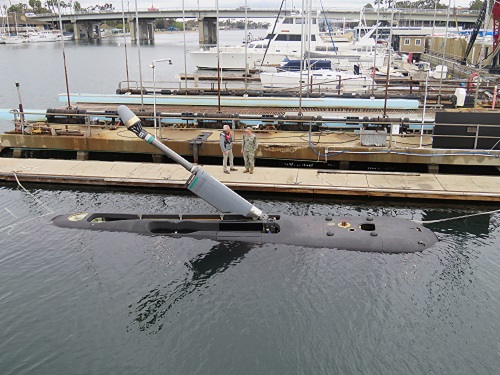
Following acceptance testing earlier this month, Boeing delivered the first of its new autonomous Orcas – extra large unscrewed undersea vehicles (XLUUV) – to the United States Navy this week, potentially pushing the boundaries of long duration missions.
The vehicles are capable of operating independently of their host vehicles, having proven themselves over several phases of at-sea testing both above and below the surface. Orcas also built on the proof-of-concept vehicle known as the Echo Voyager, a precursor that began at-sea testing back in 2017 and has, in the years since, spent more than 10,000 hours operating at sea.
“This is the culmination of more than a decade of pioneering work, developing a long-range, fully autonomous undersea vehicle with a large payload capacity that can operate completely independently of a host vehicle,” Ann Stevens, Boeing Maritime and Intelligence Systems vice president, said. “I’ve had the distinct pleasure of witnessing our team bring this first-of-its-kind capability to life, and I’m proud of their innovation, perseverance and unwavering commitment which has yielded the most advanced and capable UUV in the world. With the Navy’s partnership, we look forward to continuing to deliver this game-changing vehicle to the fleet.”
The Navy intends to use the vehicle for both changing environments and operations in contested waters.




